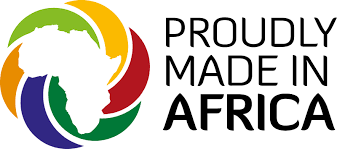
The Smurfit PMIA CEMS Workshop:
Sustainable Consumption
& Production
February 24th & March 3rd 2023
Lecturer: Killian Stokes
E-mail: killian@proudlymadeinafrica.org
Slides:
Samples Slides (day 1)
Module Description
The last century has seen the emergence of a global society dominated by multinational corporations and value chains that stretch from one side of the planet to the next. Incredible progress has been achieved for humanity in this era and arguably business has become the most powerful force for change, both positive and negative in our society.
Services and products produced by companies and industry delivered on scale across the globe have enabled billions of people to move beyond poverty but too often the full price of production and consumption of these goods is never captured within the business model of the corporation or within the price paid by consumers.
Through this two day workshop we’ll aim to explore the broken global value chains behind many of the everyday goods we all enjoy on our planet, gain an understanding of the externalities created within these chains and explore the potential for business model innovation and for impact driven companies to reimagine our global value chains to enable production and consumption to become responsible and sustainable on a planetary level in accordance with the guidelines of the sustainable development goals, while simultaneously tackling the real world challenges and dilemmas of the task.
Learning and Teaching Approach
Over an intensive two-days, students will participate in classroom learning, rooted in relevant theories complimented with practical tools. On the final afternoon of Day 2, students – organised into diverse teams – will apply the theoretical learnings to industry case studies culminating with a pitch/final presentation to the wider group. (UCD Smurfit Faculty members may attend)
Classroom Etiquette
Teamwork is an integral aspect of this module and assessment. A pre-read exercise, pre-read materials (i.e. case studies) are detailed on page 4 and 5 of this document which is required reading for all students. Students will be sub-divided into teams where active participation is required. Electronic devices are only to be used for specific module learning.
Throughout the two days students are asked not to use or take out their mobile phones, unless instructed while researching for projects.
Learning Outcomes
Having successfully completed this two day workshop, the student should be able to:
Critically discuss key concepts and theories of sustainable production and consumption through the analysis of value chains and exploration of positive and negative externalities within a business model
Appreciate the importance of innovation to resolve value chain and business model challenges.
Gain a deep understanding of SDG 12 and the challenges involved in implementation while stretching the ability of students to think about the practical application of SDG’s in business model design
Identify opportunities for global value chains based on industry, market, and customer insights
Pitch an innovative business model demonstrating novel and innovative approaches
The role personal integrity and business responsibility plays in leadership and society
Engagement with CEMS Learning Pillars
#1: Internationalism
Our graduates are knowledgeable international business practitioners, able to execute effective business decision-making in diverse contexts. This is reinforced by the international internship completed by each of our students during their year of study.
#2: Responsible Citizenship
Our graduates champion a holistic vision of responsible business decision-making, leadership and citizenship, informed by ethical reasoning, personal integrity, and respect for social diversity.
#3: Reflective Critical Thinking
Our graduates are confident, agile, and reflective decision-makers and problem-solvers, able to formulate and apply innovative solutions to complex business challenges.
Schedule of the Workshop:
Day 1: Friday 24th February
9 - 9.30
Introduction & Learning Outcomes (15 mins)
Intro to SDG12 Responsible Production (15 mins)
9.30 - 11.00
Introduction to Value Chain Economics (15 mins)
Group Exercise: VALUE CHAIN MAPPING
Mapping & Analysis Framework for 8 Value Chains from RFC Oxfam Report. (45 mins)
11.00 - 11.15
Coffee Break (15 mins)
11.15 - 11.45
Coffee Tasting Session: QUALITY + PRICE
Shane Reilly, Cofounder of Coffee Moyee Coffee Ireland. (30 mins)
11.45 - 12.45
Introduction to Moyee & Coffee Value Chain Analysis of the 6 steps of the value chain, key stakeholders, positive and negative externalities, solutions at each step? (40 mins)
Class Discussion & Questions (20 mins)
12.45 - 1.45
Lunch Break (60 mins)
1.45 - 2.00
Introduction to the Business Model Canvas (15 mins)
2.00 - 3.00
Group Exercise: BUSINESS MODEL CANVAS
4-8 African Sustainable Businesses. PMIA partners but changing the name. Gorilla Highland Coffee, Mehru Herbs, MIA chocolate, Asante Mama etc (60 mins)
3.00 - 3.15
Coffee Break (15 mins)
3.15 - 4.15
Introduction to Donut Economics (15 mins)
Donut Economics Exercise (45 mins)
4.15 - 4.45
Introduction to the Case Study for Day 2: Four Value Chains to Create Ethical Products
Prepare pitch presentation for day two seeking funding to support the creation of an ethical brand incorporating sustainable production at every stage
4.45 - 5.00
Wrap Up Day 1
Day 2: Friday 3rd March
9 - 9.15
Recap on Day One & Learning Outcomes (15 mins)
9.15 - 10.15
SDG 12 Guest Speaker: Sabita Banerji
CEO, THIRST The International Roundtable for Sustainable Tea.
Human Rights in the Tea Industry. Worker Exploitation, Corporate Responsibility and the Value Chain for Tea. (60 mins)
10.15 - 10.45
CHOC BAR EXERCISE- Each Group maps out the value chain for their received product. (30 mins)
Coffee Break (15 mins)
10.45 - 11.30
Student Presentation Preparation (45 mins)
11.30 - 11.50
Coffee Break (20 mins)
Class Discussion & Questions (20 mins)
12.00 - 12.45
Key Note Address: Guest Speaker : His Excellency the Kenyan Ambassador to Ireland, Michael K. Mubea
“SDG 12 in Africa”
12.45 - 1.45
Lunch Break (60 mins)
1.45 - 3.00
Student Presentations. 8 groups 5-10 minutes.
3.00 - 3.15
Coffee Break
3.15 - 4.15
SDG 12 Guest Speaker:
PAT KANE, FOUNDER REUZI (IRELAND) (confirmed)
The Story of Reuzi and the Journey of a Sustainable Entrepreneur in Ireland
https://reuzi.ie/
4.15 - 4.45
Student Questions Prepared from readings on sustainable consumption by Pat Kane. Q & A.
4.45 - 5.00
Wrap Up Day 2
